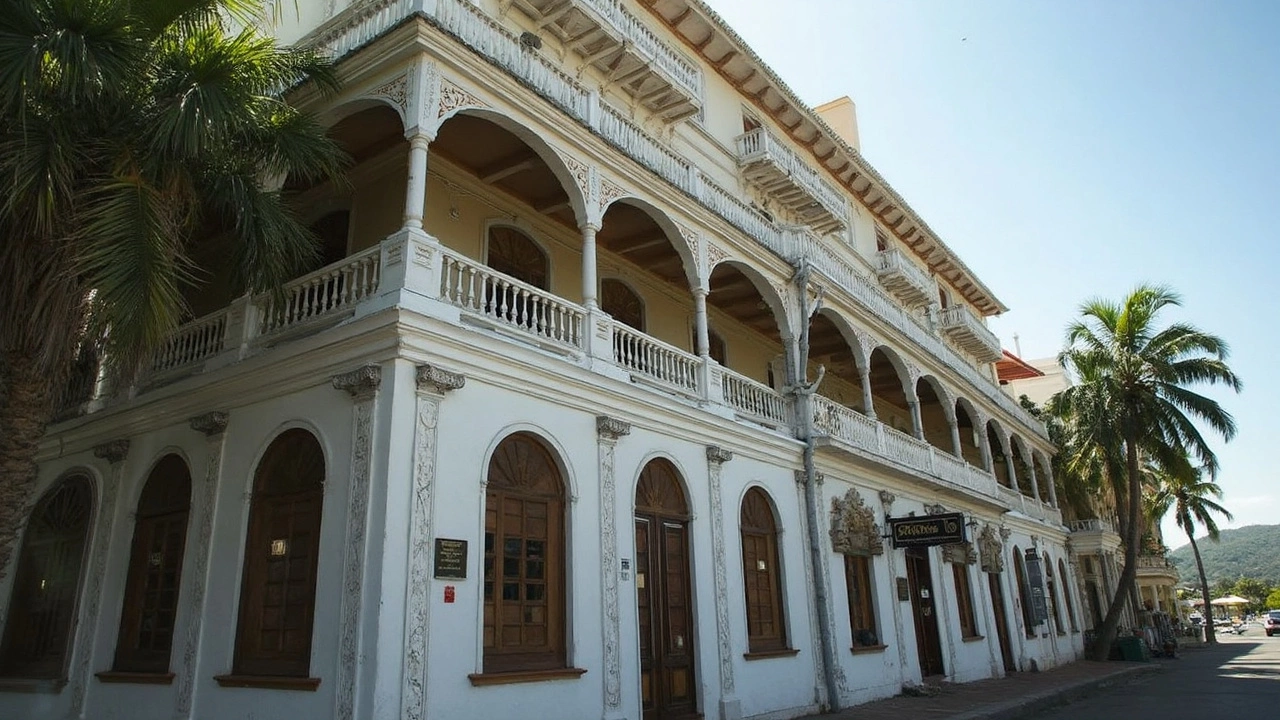Gangs Burn Down Haiti’s Storied Oloffson Hotel, Erasing A Cultural Landmark
Once a Jewel in Haiti’s History, Oloffson Hotel Lies in Ruins
When flames gutted the Hotel Oloffson over the weekend of July 6-7, 2025, Haitians lost far more than an old building. This sprawling gingerbread-style hotel, with its fancy woodwork and pointed towers, had become a crossroad for international celebrities, local artists, rum-soaked parties, and rebellious music. Now, its empty shell stands as a stark symbol of how gang violence is erasing the soul of Port-au-Prince.
The Oloffson wasn’t just any hotel. Built in the 1800s as a mansion for President Tiresias Simon Sam, it passed hands, even serving as a U.S. Marine hospital during the occupation. In 1935, Captain Werner Gustav Oloffson from Sweden gave it his name and transformed it into a place where the city’s stories unfolded. Its doors saw guests like Mick Jagger, Jackie Kennedy, and Graham Greene, who turned the hotel into legend in his novel “The Comedians.”
For some, the Oloffson was the beating heart of Haitian culture. Richard Morse, its fiercely passionate owner since 1987, turned the site into a stage for Haitian roots music and mystical Vodou gatherings. Evenings pulsed with concerts by Morse’s own RAM band, mixing drums, dancing, and spirit-lifting ceremonies. Every November, the annual Fèt Gede celebration transformed the lobby with flickering candles and chanting crowds, connecting the past and the future in unforgettable ways.

Culture Burning with the Building
But the party stopped in 2022. As gangs swallowed up Port-au-Prince neighborhoods and violence soared, Morse shut the doors. The Oloffson became a casualty well before its walls went up in smoke. Still, locals hoped it might once again buzz with life. Those hopes ended with the fire. Authorities say the 'Viv Ansamn' coalition of gangs torched the hotel, part of a spree that’s left even the wealthy Pacot district in chaos as armed groups seize block after block.
The loss has hit hard outside of Haiti, too. Reporters, artists, and visitors online are mourning, calling the fire an attack not just on a building, but on Haiti’s identity itself. Historians point to the gingerbread architecture—those elaborate wooden facades you see nowhere else—and wonder how much more can vanish before nothing’s left to remember.
- The Oloffson’s main draw wasn’t just famous faces but how it blurred boundaries—politicians, rebels, and musicians all rubbing elbows.
- Vodou rites, often misunderstood, became tourist highlights without losing their deep local roots.
- After Haiti’s 2010 earthquake, the hotel survived, giving hope that culture would outlast disaster. But rampant lawlessness proved a different beast.
There are calls for the government to wake up and protect what’s left of Haiti’s heritage. Yet with so many officials powerless—or worse, complicit—as gangs tighten their grip, that may be wishful thinking for now. What’s certain is the ashes of the Hotel Oloffson aren’t just debris—they’re what remains of yet another unique Haitian treasure, gone in a blaze fueled by neglect and fear.





